Table of Contents
Parent of strong-willed children anyone ?
Do you know when every silly and simple request during the day transforms into a screaming struggle? That’s how life with strong-willed children can be. I hadn’t even known there was a definition for it. “Parenting the strong-willed child. What do I do now? Is it a condition? Is it curable? Isn’t it just normal that my child wishes to impose her will and can’t yet control her emotional reactions? Or are we having misleading expectations? From strategy to understanding, your problem may become a life-changing gift.
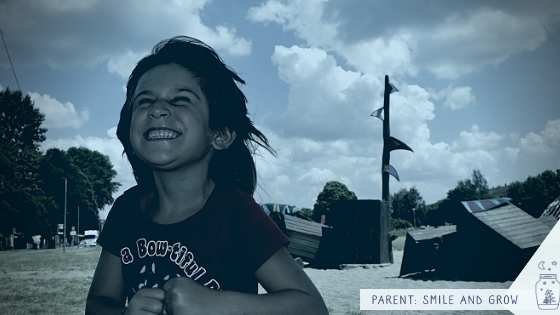
Persistence vs Strong will
Having a strong will was something I’ve always believed and being told to have. To me, it meant that if I had an objective, something I really cared for, I was ready to fight, wait, and fight again despite the obstacles. Like, nothing can stop me, right?
Then one day, I have this creature in my arms. I smile, she smiles. And then little things, like me holding the spoon instead of letting her do it, or choosing which dress to wear, would ignite a fire.
She was, what, 14 months? She couldn’t even talk yet. But she wanted to decide what clothes she should wear. What books we should look at. What and how much food to eat.
I was amazed at the fierce response whenever I tried to impose my own decision. I mean, I’m you mother ! I’ll show you who’s in control…
Mine was called persistence (or stubbornness!). One where despite my capability of never letting go, I still needed to be liked and loved by everybody.
Where I struggled with the food I ate, the looks I got, and I was so worried about other people’s opinions that for such a long time I forgot to check on what I wanted and needed. How can I win with a toddler who already knows all this?! And mostly – should I try to change her?
Why are strong-willed children a problem? Those little, every day battles
There were days when it was impossible to put her to bed. When she started talking, she also learnt she could argue with me like an experienced union trader. Do a scene whenever things didn’t go her way.
Every day we would have loud discussions; I was probably too lenient, her dad the opposite, her screams in between. It’s always normal with the first child.. until you have a second one, and discover that everything’s different!
Practical example of strong-will
The kids were having fish-sticks for dinner. To avoid disputes, We always prepare an even number. My daughter took the pan to serve herself and her brother. We were talking at the dinner table, and didn’t pay attention to what she was doing.. up to when she served her brother a half stick.
There were 4 sticks total in the pan, so there was no need for division.. My son started crying that he only wanted whole ones.
Starting to figure out what her real purpose was, we asked her to give her brother the 2 whole ones, and keep the cut halves for herself. She started crying as well.
Honey, were you cutting the sticks because you wanted to trick your little brother, and take more sticks than him?
NO! I wasn’t!
So now why don’t you want to eat the part you cut?
The cry and the denial of evidence went on, louder, as our irritation got stronger.
BUT I WANT WHAT I WANT!
She gets mad. I get mad. When everything’s calm, I want a break. So in order to regain my attention, she looks for a trigger. And it starts again. An escalation.
Another example of strong-will
We come back home from school and I already sense my daughter’s bad mood, or irritable tiredness. Actually, I had to give her an ultimatum already : her way to talking to me was becoming cheekier and impudent (testing my limits probably, although I couldn’t understand it right away).
At some point, she argues with her brother who wanted to take a look at the library books she’d borrowed, but she doesn’t allow it.
“Why honey, he just wants to look at them!”
“No mom, and you know, the librarian recommended me today that I shouldn’t let my brother take the books from the library, because once he wrote on one and they don’t want it.”
A perplexed look on my face while I try to process this information correctly and make sense of it.
It is only when I lie down in bed that night, that I suddenly realize what big lie that was : they don’t even know she has a little brother, let alone call him by name and say he can’t have books! And I was believing all that! And she actually went on the whole evening telling me stories that I’d later found were false, to have me listen closely and pay attention to her.
Final case – you got the point
Late fall, Sunday afternoon. I try to mediate between my need of just doing something that isn’t the same exact thing that I do every single day of the week (write and work from home-play with the kids-housework), and my husband’s need of doing for just one day exactly what I’ve been doing the rest of the week.
Besides, what do we do with our kids the whole day around the house?
I come up with the idea of going at a boulder center we’d only discovered the previous day, where they have a huge kids’ space. We usually take our bikes and the trailer, but after a short discussion, we go for the car instead.
Only inconvenience: my daughter doesn’t hear our conversation. She doesn’t pay attention to the fact that we’re leaving the trailer home, until she sees us reaching for the car parked in front of our building lot.
“WE WERE SUPPOSED TO TAKE THE TRAILER!”
And then, she explodes into desperate tears. You know, my husband is a very rational, very squared-minded guy. If you have a problem and say it upfront, we’ll find a solution. But if you melt down into emotions, he doesn’t get it. It only irritates him and shuts his window for mutual understanding.
Obviously, guess who’s the mediator in all this ah!
You know what the problem was? My daughter’d left her notebook and pencils in the back of the trailer because she wanted to draw and read during the trip.
And it’s a vicious cycle of mutual reactions to one another’s; of our couple’s disagreement on how to handle this, which only led to more tension. Sounds familiar?
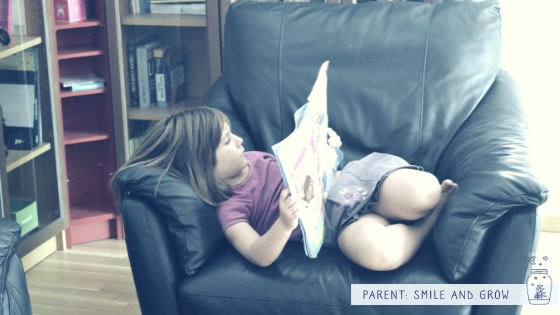
What are strong-willed children
Each episode alone isn’t necessarily a major tantrum. (We also get those, of course). But the thing was that this arguing, yelling and crying for what could have been easily solved with just a simple demand would happen almost every day.
It was tiring and frankly ruining our relationship.
I’m a solution-seeker, if there’s a harmony leak somewhere, I need to fix it and have everyone back in peace with each-other.
I was attending the parenting class at the time, and saw a book from the principle’s shelf : 'Parenting the strong-willed child'.
Uhm. Strong-willed children? That sounded familiar.
The symptoms:
-
- Very active;
- often upset;
- argues with everything;
- impatient;
- demanding;
- always wants to make the decisions ..
That’s what it was! It really sounded like something I was relating to.
The book suggests a practical 5-weeks program to improve he relationship with your strong-willed children.. So I gave it a try.
Hey! If you want to receive more inspiring content, it’s over here!
The research about strong-willed children
I didn’t even know there was a name for it. There’s hundreds of posts and articles about it (well, one more today!).
Especially since the publication of this research, where for about 40 years they studied 700 kids and their level of patience, self-esteem, relationship with the authority, level of rules obedience, etc. And they found a correlation between how much those kids where resistant to obedience and their later success in life.
Which, honestly, makes sense : even without hearing about this results, I always thought that my daughter would have a great plus for her adult life. She knows exactly what she wants, and hey, I know how that can be hard to find out! And she doesn’t care about what others have to say about it.
But thank you researcher, I still have a problem : how can you find that striving balance of letting your strong-willed children express themselves without ignoring that there are rules in our society we must abide to?
Discovery #1 : attending and not finding the time for your strong-willed children
The first week of the book’s program is devoted to observing and changing the way you talk to your child.
Hear yourself talk, and you’ll notice how many times you either give orders or ask questions.
It’s unbelievable.
Instead, the researchers suggest attending. Which practically means sit down with your child, let her decide what game you can play together, and then describe what she’s doing. Just for 10 minutes every day.
For instance, “you’re stacking one block after the next one. Wow, you’ve built such a high tower! You’re concentrating so hard on how you balance those blocks” and so on, while you imitate what she does. Like if she was directing the game. It sounds unnatural, but it allows your kid to
- be the one in control
- notice your full attention for her
You know what struck me? I had a very hard time in finding just ten minutes every day to be 1:1 with my daughter.
And I thought I was devoting myself to my children! I still tried to implement the attending talk while we were doing other things.
Boy, it sounds funny to our ears, but the kids feel so empowered by having us notice them.
First lesson : acknowledge your strong-willed children’s point of view. Even during crisis
If you want to attend, you need to pay attention. TO.BE.FULLY.THERE.
If that’s unusual to do at the beginning, it’s even harder during a meltdown, or a whining, when your first impulse is to yell back.
But try to concentrate hard enough on your child for a moment.
Instead of reinforcing the rules then, when emotions are loose, do the attending. You are actually acknowledging, expressing and clarifying their point of view and their emotions.
“Dad and I discussed and decided about what we were going to do without including you and you felt left out. And now you’re angry and sad about it because you’d made different plans”.
(That’s what I could have said if I only had thought about it at the time.. Did my best though!)
It’s an empathetic connection, and it is very effective!
Feel like we could keep in contact? Come on in 🙂
Second lesson : stop controlling your strong-willed children
While I was forcing myself to being more present, I realized just how difficult it was for me to let my children in charge, and avoid controlling everything.
I mean small things : go put your pajamas; have you brushed your teeth? do this, do that, could you? The whole time. Instead of letting them see for themselves what they need to do.
It stroke me when I finally tried to get more help around the house. I listed all the tasks that needed to be done, and asked both children to pick one they were willing to be responsible for.
Which meant accepting that the windows were only clean up to my eye-level, and the dust just changed place (I’m not picky with household’s cleaning, so that’s fine).
We went from “I’m not doing anything!” to “Mom, please, can I be responsible for cleaning the bathroom?” Can you imagine the change ?
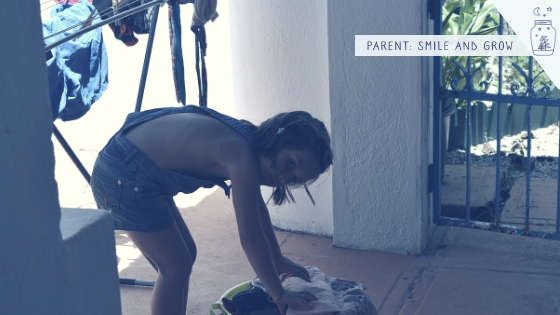
But hey, isn’t it the same in the corporate world? Don’t you feel a lot more motivated when someone leaves you free and responsible for something, instead of constantly controlling what you’re doing? I might write an article about what parenting and managing have in common now that I think about it! 🙂
Discovery #2 : rushing more than rewarding
Getting back to the book’s program. The second point was giving rewards, being them
- verbal (praise),
- physical (kisses and hugs)
- or through an activity to do together.
The logic is simple : instead of focusing on the bad behavior, you pay extra attention to what goes well.(See the parallel with your boss?)
That’s when I made my second discovery : I was rushing my kids through the various tasks more then I was connecting to them.
Some days, I would just realize it was almost dinner time, and I hadn’t hugged or kissed my daughter yet. Not in that special “I love you more than anything” motherly way.
I went from “hurry up, we’ll be late for school!” to “Come on, let’s go home now” and “take off your shoes!” and then “get ready for bed”.
Whereas when I started paying attention and spent those extra minutes to acknowledge, praise, and then hug, we were closer. It felt warmer, deep and tender.
Think about the last time your kid asked you to play with him or read a story, and you had some other tasks to attend to. What if you stopped 5 minutes to just sit with your child?
I tried. We had groceries still in the bags, dinner to get ready, and yet, something in my son’s eyes rang a bell within me. We sat in the middle of the hallway and read a story. My daughter heard us, and joined us as well. It changed the mood for the whole evening. Just for those 5 minutes where I put my children first.

Discovery #3 : when failing to ignore reinforces the negative
Once you’ve started introducing on a daily basis all this positive reinforcement, the authors now claim the importance of ignoring the bad behavior. But in a strategic, planned way.
You choose you behavior that bothers you, like whining to get attention, and you systematically stop getting in contact with your child when she does it.
That was the hardest part for me. I’d do it at the beginning, but end up snapping at my daughter in the end..
But by failing to ignore all those bad behavior, I was actually reinforcing them with my attention. And the vicious cycle would install!
Discovery #4 : less words are better
I talk too much. I explain the whys and the hows and the underlying needs behind every rule I set.. Forgetting that my kids’ brains just aren’t there yet!
This is where the fourth point led me. Giving clear directions is a fundamental aspect of rules setting, right?
That means one sentence only. No questions; multiple tasks; nor long explanations.
I thought about all those times I sat with my daughter detailing all the profound meanings behind my irritations and boundaries.. and the sad, lost look in her eyes.

Discovery #5 : noncompliance needs a consequence
This is especially true for strong-willed children : they’ll test the limits, and to learn their responsibility, you need to decide and give a consequence for noncompliance. And a consistent one!
Which was our main issue : from my lenient “oh well, did you understand? will you do better next time?” to dad’s punishment.
Each parent and each day were different.. no wonder my kid learnt to argue with me! It worked!
Why not joining our community of parents for mutual support ?
Where the journey with strong-willed children leads us
Now, it’s been several weeks I tried focusing on all this. Do I have two perfect kids who always listen to me, stay still when needed, and always say yes to whatever I ask?
Of course not! But there’s less arguing. (and I stopped replying to that when it happens.)
My imperfect, strong-willed children forced me to stop working on how to react, but to focus on creating the connections and the conditions that prevent the crisis.
Most of all, they’ve been teaching me to pay attention to our relationship. To cherish our time together.
My focus has shifted from the bad behavior, to really noticing who my children are, and what it takes to accept them without wanting to change them.
I really like this sentence I found while researching for this article :
“If you teach a strong willed child to do what’s right, they will do what’s right with a strong will.”

Your job as a parent is to help your children to redirect their strong-will towards the good. Not suppress, punish, or deny their strong-will. That’s what’ll make them strive in life.
Resources and references
I share with you some articles that I have taken as a reference, and useful readings as always! Links to Amazon in this page are affiliate links.
But first, I ask you 3 things:
-
Share this post if you found it useful!
-
What do you think? I’d really like to hear about your experience 🙂
-
You liked the article and you’re interested in joining the club and receiving food for thoughts and inspiring suggestions directly in your inbox? It’s over here!
Articles:
-
A concise and practical advice on 5 ways to transform the daily tensions with strong-willed children into positive moments.
-
This lady is just brilliant. She is humorous, perky and gives deep, sensible advice on how to deal with your strong-willed children’s battles.
-
If you feel exhausted, alone, defeated.. then read this post now. Such a funny and true perspective of what it really means to be the parent of strong-willed children!
-
This great, complete and insightful post will help you switch your perspective when it comes to “fixing my strong-willed children’s attitude”.
-
Lastly, go through these useful tips for helping your children go through their turmoil of emotions with positive discipline .
Books:
-
My main reference comes from reading this book : Parenting the Strong-Willed Child: The Clinically Proven Five-Week Program for Parents of Two- to Six-Year-Olds. I just finished reading it, and I’ve found it very practical and rich of great advice. It’s really helping me understand a few wrong patterns in my behavior with my daughter.
-
I still haven’t read this one, but I feel it can be of great help : Setting Limits With Your Strong-Willed Child.
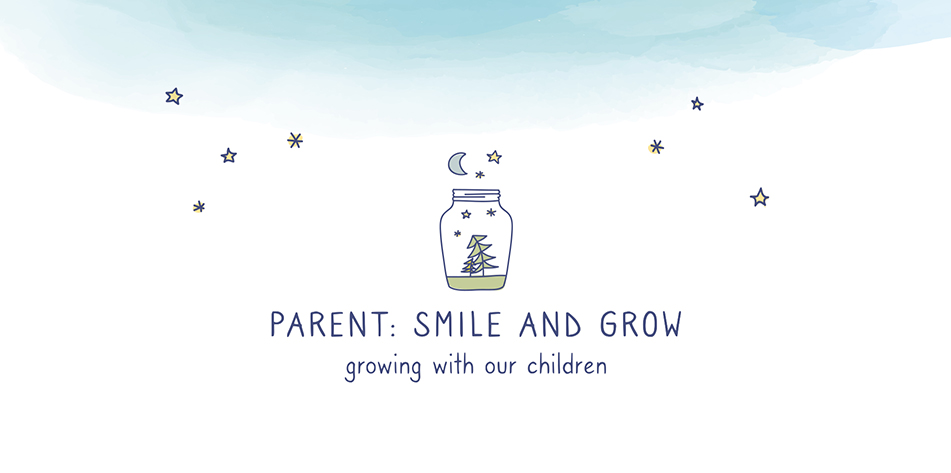
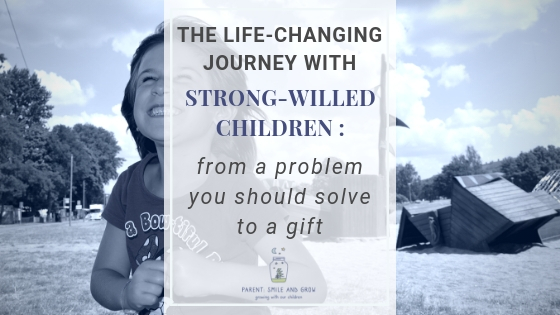
Thanks for sharing this parenting guide. I will share these to my friends!
It’s important to give strong-willed children choices. They can wear outfit A or B. They are still making a decision, but it’s one you can live with. They feel in control and you avoid conflict. Also, parents should pick their battles and prioritize what’s important. Safety always wins. Who care if the kid takes his pull-toy to the bank?
Definitely agree!! Thank you Tracy!
This is so detailed and interesting! I have 1 super strong willed child and we use positive parenting at home. A lot.of your techniques and suggestions actually fall in line with the positive parenting approach. I really enjoyed reading your real life situations too.
It was great going through the research on strong willed children. Thanks for sharing.
I was a strong-willed child, but it caused me to go through a defiant and rebellious phase as a teenager that I wish I could take back, because it hurt my parents. I’d definitely try a different approach if I had kids
I think if a child is strong willed it could be both a good and bad thing. Good from career perspective and bad because of unnecessary fights with parents.
Strong-willed children are a challenge but with the right techniques to help them manage themselves, they are a joy.
I always found structuring choice into the things I wanted my daughter to do worked really well. “Would you like the red jeans or the blue jogging pants” makes it clear they are wearing trousers today, but they still get to decide which.
this is an experience
This could be a great help to my mummy bestie who’s struggling with one! Thanks for sharing great advices! You’re a blessing to many!
Oh thank you! So glad this can help somebody out!! 🙂